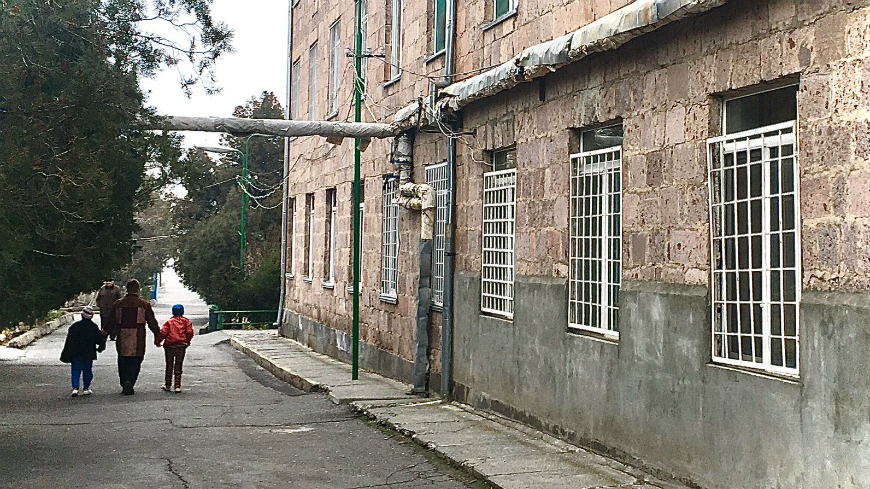The CPT has today published a report on its fifth periodic visit to Armenia, which took place from 2 to 12 December 2019, together with the response of the Armenian Government. Both documents have been made public at the request of the Armenian authorities.
The Committee notes that the great majority of the persons interviewed by the delegation, who were or had recently been in police custody, stated that they had been treated by the police in a correct manner. Furthermore, the CPT’s delegation did not receive any credible allegations of recent physical ill-treatment by staff in the six penitentiary establishments visited.
Unfortunately, the Committee concludes that inter-prisoner violence, intimidation and extortion remains a problem in most of the prisons visited and it is clearly related to the persistent influence of the informal prisoner hierarchy. The Committee calls upon the Armenian authorities to step up their efforts to combat inter-prisoner violence and intimidation.
The Committee welcomes the plans of the Armenian authorities to close down, by the end of 2022, several old prisons (Goris, Hrazdan, Nubarashen, Yerevan-Kentron, as well as the Central Prison Hospital) where material conditions vary from very poor to just about acceptable and to replace them with new prisons (or units) built from scratch according to contemporary international standards.
The Committee also positively notes the on-going reform of the prison health-care service and the establishment of a Penitentiary Medicine Centre, a public non-commercial organisation for health care provision in prisons; however, it is concerned that a number of inmates still complain about access to specialised care.
The Committee is also concerned with inadequate levels of staff of all disciplines found, to differing degrees, in the three psychiatric hospitals visited; the situation in Syunik Marz is especially worrying, threatening the entire viability of Syunik Dispensary and the regional out-patient service. Furthermore, multi-disciplinary clinical staff are either entirely lacking or insufficient in number to meet the many psycho-social treatment and rehabilitation needs of the patients.
Similar to the findings of the previous visits, the Committee notes with deep concern that a number of legally competent patients who have signed consent to hospitalisation forms and are still deemed voluntary, are nevertheless not truly consenting to their hospitalisation, stating that they want to leave but are often not allowed to even take outdoor exercise, let alone depart the hospital, thus being de facto detained. The report says that at Armash Health Centre, the CPT’s delegation was told that applying to court for authorisation for involuntary hospitalisation “would be a hassle” and that “it was mandatory to sign a consent form for voluntary hospitalisation”.
The CPT is impressed with the efforts made to provide individual care for the residents of Dzorak Social Care Centre for Persons with Psychiatric Disorders and a range of multi-disciplinary structured psycho-social occupational and recreational activities; this is especially commendable considering the challenges faced by the low numbers of staff.
The Committee encourages the Armenian authorities to continue to pursue their efforts towards the development of community social care accommodation and day care so as to shorten or avoid institutional stays and improve experiences and outcomes for service users, allowing their proper re-integration into the community.
In their response, the Armenian authorities provide information on the steps being taken to address the issues raised by the CPT. In particular, they refer to the upcoming adoption of the new Criminal Code, Criminal Procedure Code and Penitentiary Code which should address a number of shortcomings and further strengthen the protection of human rights. They reiterate the plans to replace a number of old prisons by new, modern, ones. Reference is also made to the new legislation criminalising belonging to a criminal subculture and a number of measures to be taken to fight the phenomenon in prisons. Information is also provided on the adoption of a new Law on Psychiatric Assistance and Care which brings changes to the procedures of the involuntary hospitalisation, and involuntary treatment.




